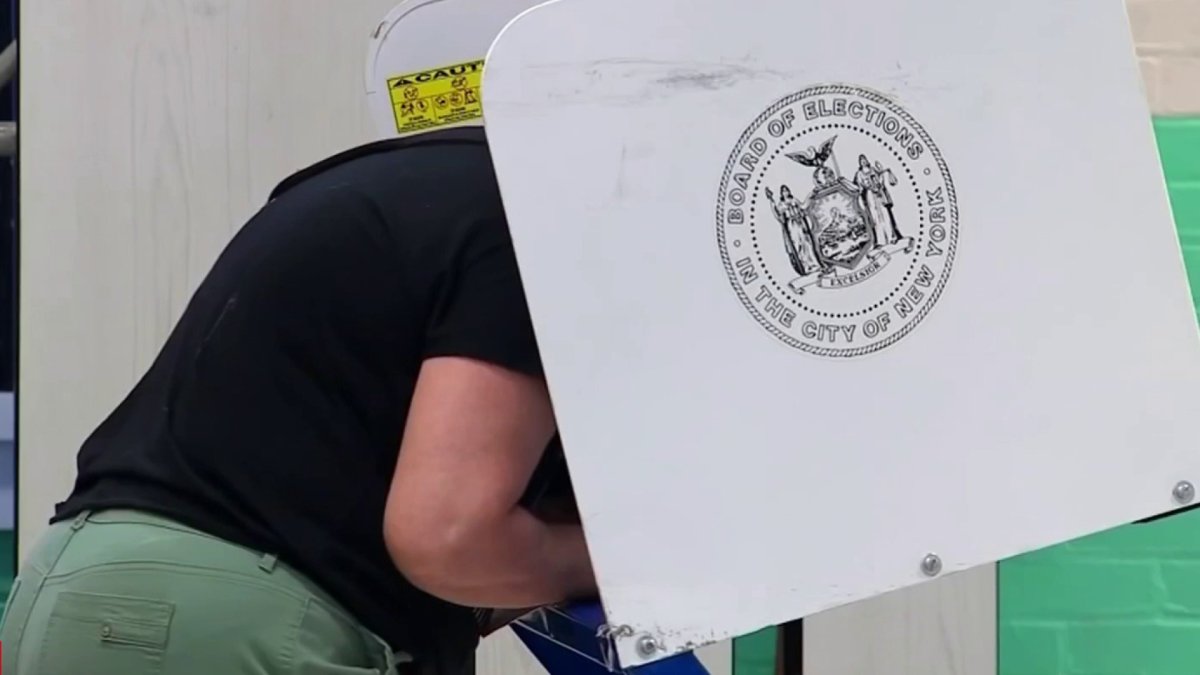
What to Know
- New York is poised to become the largest U.S. city to give access to the ballot box to those with green cards or legally authorized to work in the country
- The City Council passed the bill Thursday evening, allowing some 800,000 noncitizens to help pick mayors, borough presidents and city council members
- Mayor Bill de Blasio has concerns about the legislation, but says he won’t veto it. Noncitizens still couldn't vote for president, members of Congress or in state elections that pick the governor, judges and legislators
Noncitizens in New York City would gain the right to vote in local elections under a measure approved Thursday evening by the City Council that would give access to the ballot box to 800,000 green card holders and so-called Dreamers.
Only a potential veto from Mayor Bill de Blasio stood in the way of the measure becoming law, but the Democrat — who has raised concerns about the wisdom and legality of the legislation — said he would not veto it. It's unclear whether the bill might face legal challenges.
The Council's vote was a historic moment for an effort that had long languished. Councilman Francisco Moya, whose family hails from Ecuador, choked up as he spoke in support of the bill.
Get Tri-state area news and weather forecasts to your inbox. Sign up for NBC New York newsletters.
“This is for my beautiful mother who will be able to vote for her son,” said Moya, while joining the session by video with his immigrant mother at his side.
More than a dozen communities across the United States already allow noncitizens to cast ballots in local elections, including 11 towns in Maryland and two in Vermont. But New York City is the largest place by far to give voting rights to noncitizens.
Noncitizens still wouldn’t be able to vote for president or members of Congress in federal races, or in the state elections that pick the governor, judges and legislators.
Local
The city’s move could enflame the national debate over voting rights, particularly among some who wrongly assert that rampant fraud by noncitizens has taken place in federal elections. Last year, Alabama, Colorado and Florida adopted rules that would preempt any attempts to pass laws like the one in New York City. Arizona and North Dakota already had prohibitions on the books.
“The bill we’re doing today will have national repercussions,” said the council’s majority leader, Laurie Cumbo, a Democrat who opposed the bill. She expressed concern that the measure could diminish the influence of African American voters.
Legally documented, voting-age noncitizens comprise nearly one in nine of the city’s 7 million voting-age inhabitants. The measure would allow noncitizens who have been lawful permanent residents of the city for at least 30 days, as well as those authorized to work in the U.S. to help select the city’s mayor, city council members, borough presidents, comptroller and public advocate.
“It is no secret, we are making history today. 50 years down the line when our children look back at this moment they will see a diverse coalition of advocates who came together to write a new chapter in New York City’s history by giving immigrant New Yorkers the power of the ballot,” Council Member Ydanis Rodriguez, a main sponsor of the bill, said in a statement after Thursday’s vote.
It also covers “Dreamers" like Eva Santos, 32, who was brought to the U.S. by her parents at age 11 as an unauthorized immigrant, but wasn't able to vote like her friends or go to college when she turned 18.
“It was really hard for me to see how my other friends were able to make decisions for their future, and I couldn’t,” said Santos, now a community organizer.
Giving nonresidents the right to vote could empower them to become a political force that can’t be easily ignored, said Anu Joshi, the vice president of policy of the New York Immigration Coalition.
The law would direct the Board of Elections to draw up an implementation plan by July, including voter registration rules and provisions that would create separate ballots for municipal races to prevent noncitizens from casting ballots in federal and state contests. Noncitizens wouldn’t be allowed to vote until elections in 2023.
Even if de Blasio were to decide to veto the bill, there was enough support to override it. The measure would become law by default if the mayor decides not to act on it. Incoming mayor Eric Adams has said he supports the bill.
Federal law allows states and local governments to decide who can vote in their elections, but some, including the mayor, have raised concerns about whether state lawmakers must first act to grant the city the authority to extend voting rights to noncitizens.
City Councilman Joseph Borelli, the Republican leader, said a legal challenge is likely. Opponents say the council lacks the authority on its own to grant voting rights to noncitizens and should have first sought action by state lawmakers.
New York City, with more than 3 million foreign-born residents, would be a fitting place to anchor a national movement to expand immigrant voting rights, said Ron Hayduk, now a professor of political science at San Francisco State University but who spent years in New York steeped in the movement for noncitizen voting rights.
“New York, the home of the Statue of Liberty and Ellis Island, prides itself on being the place of immigration,” he noted. “So there’s this question of what’s the place of immigrants in our city — are they really New Yorkers, are they full New Yorkers in the sense of qualifying and deserving the power of the vote and to shape its political future?”
The answer should be a “resounding yes,” he said.